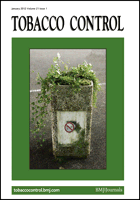
一项研究调查了数百名美国吸烟者,发现用尼古丁贴片帮助戒烟并不比自主戒烟效果好。这是对澳洲政府对尼古丁贴片治疗进行补贴的一个打击。
这项为期5年的研究,调查了2001年至2005年间的吸烟人群或既往有吸烟史的人群,发现1/5的人在最近放弃了用尼古丁贴片、尼古丁咀嚼胶、吸入剂或鼻喷剂来帮助戒烟。
这些产品并没有能帮助吸烟者彻底摆脱烟瘾,尤其是那些烟瘾很重的,若是不配合咨询辅导疗法,非常容易复发。
研究的领导者,哈佛大学公共卫生学家Hillel Alpert说到:“一些烟瘾很重的吸烟者把尼古丁替代疗法当成了救命稻草,结果却发现它们并不是,于是他们就认为自己的戒烟努力没有得到足够的支持,失败是注定的。”
自从二月份批准了一项药物福利计划,联邦政府去年在尼古丁替代贴片上已经投入了9百多万多美元。吸烟者最多可以领到12个星期的尼古丁贴片,但必须承诺接受心理辅导疗法。
Alpert博士说他的研究调查了普通吸烟人群中尼古丁替代贴片的使用情况,并跟已有一些临床试验结果进行了比较。在这些临床试验中,药物组的戒烟成功率比安慰剂组高两倍甚至三倍。
卫生和老龄部认为这些随机试验的结果是评估药物拨款申请的最好依据。
但是Alpert博士的研究结果质疑了这些随机试验结果的可靠性,他认为入组标准的限制,如患有抑郁症的和烟瘾较轻的吸烟者往往被排除在外,使得研究结果的水分很大。
悉尼大学公共卫生系的Simon Chapman教授说道:“受试者可能也受到了免费药物治疗和护理的影响。另外一些受试者甚至被告知其服用的是安慰剂,这使得他们会更容易放弃戒烟。”
新南威尔士州癌症协会的CEO,Andrew Penman说道:“美国的这项研究表明,过于依赖药物戒烟不是个明智选择。调整税收和法律制度以及在社会上广泛宣传(戒烟),从而营造出一个良好的戒烟环境,或许这才是关键所在。”
Penman博士说道。“吸烟是个社会问题,即使你通过使用尼古丁替代贴片戒了烟,但由于一些社会因素的存在,它并不能帮助你彻底摆脱复吸的厄运。”
悉尼大学心脑研究所的Renee Bittoun说道:“许多烟龄较长的吸烟者尼古丁的代谢非常的迅速,这意味着目前常规使用的尼古丁贴片的剂量实在太低了。”

A prospective cohort study challenging the effectiveness of population-based medical intervention for smoking cessation
Hillel R Alpert, Gregory N Connolly, Lois Biener
Objective: To examine the population effectiveness of nicotine replacement therapies (NRTs), either with or without professional counselling, and provide evidence needed to better inform healthcare coverage decisions.
Methods: A prospective cohort study was conducted in three waves on a probability sample of 787 Massachusetts adult smokers who had recently quit smoking. The baseline response rate was 46%; follow-up was completed with 56% of the designated cohort at wave 2 and 68% at wave 3. The relationship between relapse to smoking at follow-up interviews and assistance used, including NRT with or without professional help, was examined.
Results: Almost one-third of recent quitters at each wave reported to have relapsed by the subsequent interview. Odds of relapse were unaffected by use of NRT for >6 weeks either with (p=0.117) or without (p=0.159) professional counselling and were highest among prior heavily dependent persons who reported NRT use for any length of time without professional counselling (OR 2.68).
Conclusions: This study finds that persons who have quit smoking relapsed at equivalent rates, whether or not they used NRT to help them in their quit attempts. Cessation medication policy should be made in the larger context of public health, and increasing individual treatment coverage should not be at the expense of population evidence-based programmes and policies.
文献链接:https://tobaccocontrol.bmj.com/content/early/2012/01/03/tobaccocontrol-2011-050129.abstract








